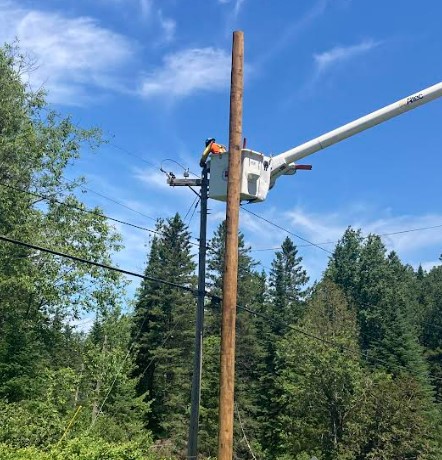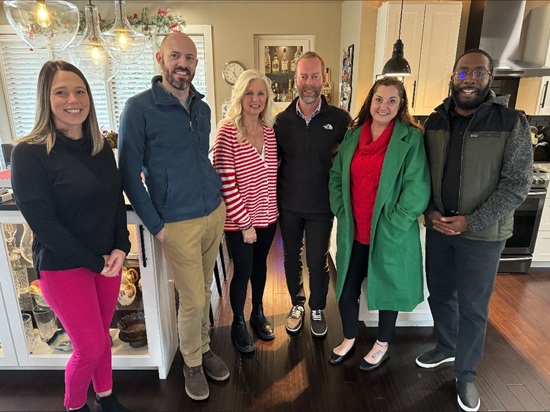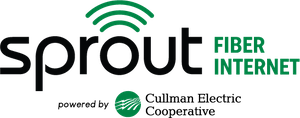
Fast, affordable Internet access for all.

NEK Broadband continues to bring affordable fiber access to the long-neglected corners of the Green Mountain State. According to the latest update by NEK Broadband, a recently completed rollout has delivered affordable fiber access to 700 new addresses across multiple rural Vermont communities.
NEK Broadband is one of nine Communications Union Districts (CUDs) scattered across the state of Vermont. NEK Broadband alone represents 45 Vermont communities across Caledonia, Essex, Orleans and Lamoille Counties in the northeast part of the state (see the full list of communities here).
The CUD’s latest expansion plan primarily focused on bringing fiber access to parts of Danville, Kirby, Lyndon, St. Johnsbury, Walden and Wheelock, Vermont. With this latest expansion, NEK Broadband now provides fiber access to 2,100 predominantly rural Vermont residents in total, many of which only received broadband for the first time last year.
“We’re so pleased to end 2023 by giving more residents of the NEK access to high-speed internet,” Christa Shute, NEK Broadband’s Executive Director, said in a prepared statement. “We plan to bring even more residents online in early 2024.”

The CUD currently provides upgraded users with access to speeds that exceed those provided by cable and DSL providers, even in many more urban markets.
NEK Broadband currently offers four tiers of broadband service: symmetrical 50 megabit per second (Mbps) service for $80 a month; symmetrical 250 Mbps service for $103 a month; symmetrical 500 Mbps service for $135 a month; and a symmetrical gigabit per second (Gbps) offering for $250 a month.
Los Alamos County, New Mexico joins the growing list of municipalities looking to explore a community-owned broadband network in a bid to improve resident access to fast, affordable, next-generation fiber.
The request for proposal (RFP), originally issued August 13, called for design, planning, and construction partners for a locally-owned and operated fiber network. An updated RFP was issued on December 12, 2023 stating that applications for phase two of their planned project were deemed “incomplete.” The county has given potential partners until January 12 to respond.
“The county team is now reviewing the submitted proposals,” the county states. “Once one is selected and an agreement finalized, the county will request the council award a contract. This may occur in early 2024.”

The RFPs come after county council leaders passed a motion last January declaring “…that high-quality reliable telecommunication including broadband is an essential service.” Los Alamos County officials did not respond to repeated requests for comment asking for more detail on the county’s goals. Local outlets suggest more details should emerge in 2024.
New Mexico is poised to receive more than $635 million in broadband subsidies courtesy of the Broadband Equity Access and Development (BEAD) program, made possible in turn by the 2021 Infrastructure Investment and Jobs Act.
As the new year begins, the Institute for Local Self-Reliance (ILSR) announced today its latest tally of municipal broadband networks which shows a dramatic surge in the number of communities building publicly-owned, locally controlled high-speed Internet infrastructure over the last three years.
Since January 1, 2021, at least 47 new municipal networks have come online with dozens of other projects still in the planning or pre-construction phase, which includes the possibility of building 40 new municipal networks in California alone.
Waterloo, Iowa’s municipal broadband project has taken a major step forward after nearly two decades of planning.
Waterloo Fiber officials just launched their first limited fiber trial, will connect their first commercial customers in February, and are on target to deploy affordable fiber at speeds up to 10 gigabit per second (Gbps) to every last city resident by 2026.
When we last checked in with Waterloo in February of last year, the city was putting the finishing touches on a plan to spend $115 million to build a fiber backbone accessible to all 67,695 Waterloo residents, after locals approved the city issuing general obligation bonds to fund the start of the three-phase construction project.
Construction of the network began last summer at a groundbreaking ceremony hosted by Waterloo Mayor Quentin Hart.
“It will be the lifeline that connects our entire community, enabling businesses to thrive, students to excel and families to stay connected," Hart told attendees. "This fiber system will lay the foundation for a smart city innovation, economic growth and an enhanced quality of life for all our residents."

Last month the city connected the first of four participants in a limited pilot project.
As digital inclusion practitioners and broadband-for-all advocates continue to push Congress to save the Affordable Connectivity Program (ACP), 22.5 million Americans now enrolled in the program are weeks away from being officially notified of its pending termination as ACP funds are on track to be depleted by the end of April.
The looming demise of the ACP – which provides income-eligible households with a $30 monthly voucher to pay for pricey Internet service bills ($75/month for Tribal citizens living on reservations) – comes at a crucial moment in the rollout of the “Internet For All” initiative. All 56 States and U.S. territories are poised to receive nearly $45 billion in broadband expansion funds from the bipartisan infrastructure law over the next year.
Separate from the BEAD program and Digital Equity Act funding, the bipartisan infrastructure law also established the ACP with a $14.2 billion allocation. At current enrollment rates, the program disburses about $650 million per month to Internet service providers (ISPs).
A looming new bill by Republican Kentucky State Senator Gex Williams could undermine decades of broadband progress made in the state’s capital city by a popular locally-owned utility, Frankfort Plant Board (FPB).
Home to 28,000 Kentuckians, local residents and utility officials in Frankfort are incensed at the bill, which they believe will unnecessarily result in higher rates, fewer jobs, and less broadband competition overall.
Williams is circulating a bill in the Kentucky state legislature that, if passed, would force FPB to sell its broadband division to a private-sector company and subject it to more stringent oversight requirements. In guest editorials circulated in the local press, Williams insists his goal is to “rein in” the FPB, which he deems part of a “runaway” government that lacks accountability.
But there’s no evidence for Williams’ allegations of limited accountability, and locals and activists alike believe that the legislator is simply running interference for regional broadband monopolies upset by the added competition created by the popular, publicly-owned utility.
Another Community-Owned Solution Addressing Market Failure
Like many local U.S. communities, Frankfort sees a notable dearth of meaningful broadband competition, resulting in patchy broadband coverage, slow speeds, high prices, and abysmal customer service. Enter the Frankfort Plant Board, which has been deploying affordable fiber access across the community under the NEXTBAND brand.
UTOPIA Fiber has completed its fourth major broadband deployment of 2023, with the finished construction of a $23.5 million citywide fiber-to-the-home (FTTH) build in Syracuse, Utah (est. pop. 33,000).
Network construction began November 30, 2021, and its first customer was connected on September 12, 2023. UTOPIA officials say the new Syracuse network passes 12,324 residential addresses, and has already reached a nearly 16% subscriber take rate in the city.
UTOPIA, shorthand for Utah Telecommunication Open Infrastructure Agency, is a collaboration between 11 Utah cities that joined together in 2004 to build, deploy and operate a fiber network that reaches every last home and business in its territory. Since 2009, UTOPIA’s expansion has been funded entirely by subscriber revenues.
Despite some early lawsuits by regional monopolies like Qwest (now Centurylink/Lumen) designed to kill the project before it could get a foothold, UTOPIA has not only survived but thrived, and its success has been transformative for large swaths of the Beehive State.
Syracuse – like many U.S. communities – had been consistently underserved by a duopoly of Comcast and Centurylink (Lumen). That lack of competition consistently results in sluggish, expensive, spotty broadband service, and substandard customer service. Now, locals have access to a variety of far more affordable options thanks to a menu of UTOPIA partner ISPs.
Knoxville, Tennessee's Knoxville Utility Board (KUB) says it has completed the first phase of its ambitious broadband deployment, bringing affordable fiber access to more than 50,000 premises in this city of 192,000 – many for the very first time.
When we last wrote about KUB back in 2021, the city's utility had just received approval to build what will eventually be the biggest municipal broadband network in the U.S.
All told, the $702 million project, known as KUB Fiber, aims to deliver affordable fiber to 210,000 households across KUB’s 688-square-mile service area, taking between seven and ten years to complete.
KUB says that the first phase of fiber deployment involved the installation of more than 1,100 miles of fiber infrastructure. Upgraded users have the option of three tiers of service: symmetrical gigabit per second (Gbps) service for $65 a month; symmetrical 2.5 Gbps service for $150 a month; and symmetrical 10 Gbps service for $300 a month.
KUB’s service tiers do not come with usage caps or long-term contracts. Unlike many municipal operations, KUB is also offering locals the option of bundling television service.
KUB was driven to expand access after more than a decade of local frustration at the slow speeds, high prices, and spotty coverage caused by a notable lack of competition between regional telecom monopolies, AT&T and Comcast (Xfinity). Both companies have attempted to lock down customers via long-term contracts ahead of the network’s completion.
As one local resident said:
“Comcast thanked me for being a customer for 23 years, but it's not because I've had the option to go anywhere else. They have had 23 years to fix these problems and they haven't."
Cullman, Alabama-based Cullman Electric Cooperative says it is launching a new phase of fiber deployment after receiving a $7 million grant to bring affordable fiber access to long-neglected Cullman and Winston counties.
The financing was made possible by the Alabama Broadband Accessibility Fund (ABAF), funded by the 2021 American Rescue Plan Act (ARPA). The state has already dedicated more than $82 million in funding for Alabama broadband deployments, bringing broadband access to 72,000 currently unserved residents.

Cullman’s $7 million portion will bring affordable fiber access to 1,300 families. Known as Sprout Fiber Internet, Cullman currently offers residential customers symmetrical 300 Mbps (megabit per second) service for $60 a month; symmetrical 1 Gbps (gigabit per second) service for $80 a month, and symmetrical 2 Gbps service for $120 a month.
That’s significantly faster and cheaper service than is currently offered by any of the dominant private telecom monopolies in Cullman (predominantly AT&T or Charter/Spectrum), without usage caps, hidden fees, or long-term contracts.
A plan in Jamestown, New York to deploy affordable fiber to every last city resident has received welcome support from state leaders, even though deployment details remain murky and network construction remains well over the horizon.
In 2021, Jamestown officials told ILSR they were working with Entrypoint Networks on a $25 million fiber network for the city of 28,000. The city hopes to deliver fiber in conjunction with the Jamestown Board of Public Utilities, leaning heavily on the federal Affordable Connectivity Program (ACP) to ensure low cost access to marginalized and low income communities.

The city’s plans got a needed attention boost last month when Empire State Development – tasked with boosting economic development across New York State – gave a nod to Jamestown’s efforts in the organization’s five-year development plan.
The plan, among other things, will shape how the state utilizes $664 million in federal subsidies made possible by the Broadband Equity Access and Deployment (BEAD) Program and the 2021 infrastructure bill. While Jamestown may qualify for BEAD funding, how much the city’s project could receive remains undetermined.